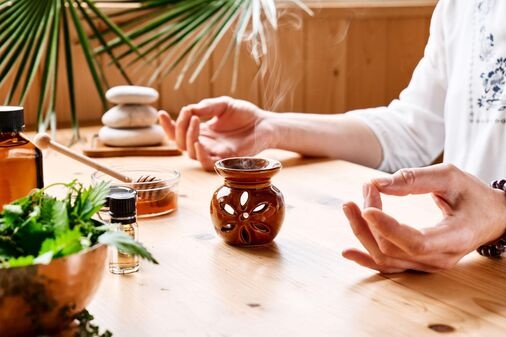If you are the kind of person who likes to help others, then working as a counsellor can be a very rewarding choice of career path.
Currently, there are estimated to be around 30,000 counsellors practising in Australia.
All of whom work with clients to help them manage mental issues and psychological traumas they may be experiencing in their lives.
If you are interested in pursuing a career in this field, outlined below is an overview of what to expect when you start working as a counsellor.
We hope this will give you more of an idea of what you would be getting yourself into, should you decide to choose this as your vocational path.
What exactly does a counsellor do?
Counsellors are trained professionals who assist individuals to manage and deal with a range of psychological issues.
This can include:
- Anxiety
- Depression
- Grief
- Personal growth and development
- Post-traumatic stress disorder
- Relationship problems
- Sexual, physical or psychological abuse
- Sexuality and gender identity
- Suicidal thoughts
They strive to resolve their clients’ issues in a positive and meaningful way by identifying the cause of them, exploring and developing coping strategies, and also increasing self-awareness within their clients.
Counsellors usually see clients on a short-term basis and provide a safe, confidential and non-judgemental environment in which to process their thoughts and emotions.
Sessions are held on a one-to-one basis, or with other individuals like your partner or children as required. Sometimes they even take the form of group counselling too.
What is the difference between a counsellor and a psychologist?
You could be forgiven for thinking that a counsellor is just another word for a psychologist. But in fact, the two roles are quite different.
Psychologists are highly trained individuals who are experts in human mental processes, especially when it comes to behaviour and emotion.
During the course of their work, they use evidence-based practices and scientific methods to evaluate, diagnose and treat mental illness in a non-medical way, over a prolonged period.
To qualify in Australia as a psychologist, you’ll need to partake in a minimum of 3 years of tertiary study in Psychology. You will also need to engage in several years of supervised practice prior to being awarded registration with the Psychology Board of Australia.
By contrast, counsellors tend to help clients cope with, and resolve their issues via short-term treatment on a conscious level.
They can help their clients to manage big and powerful emotional processes like anger, fear, grief or jealousy, as well as overcome difficult moments in their life or relationships.
Surprisingly, counselling is unregulated in Australia. However, in order to gain registration with the Australian Counselling Association, there is a minimum level of tertiary education required.
Typically, this tends to be either a Diploma of Counselling with TSA or a Graduate Diploma in Counselling. Which you can generally compete over a 1-2 year full time course.
Types of counsellors
On a daily basis, counsellors work with various individuals, as well as couples, families and groups in relation to many different issues
Counsellors offer a range of services, with the most common types being as follows:
- Carers’ counselling
- Counselling for young people i.e., children, teenagers and young adults
- Counselling for seniors
- Ex-servicemen counselling
- Family therapy
- Financial counselling
- Rehabilitation counselling (for those who are disabled, have health conditions or are socially disadvantaged).
- Relationship counselling
- School counselling
Aside from these services, counsellors often help clients to cope and manage with issues like:
- Alcohol or drug addiction
- Anger management
- Dealing with eating disorders like anorexia or bulimia
- Grief and loss
Depending on the counsellor they might offer their clients one uniform approach, or a selection of them to deal with their issues.
What day-to-day activities does a counsellor do?
While counsellors may choose what type of service they want to specialise in, they all generally engage in the same daily activities.
If you are keen to find out what it’s like to work as a professional counsellor, here is an overview of the regular day-to-day activities you may perform if you decide to become one.
Reviewing notes and prepping for forthcoming sessions
For many counsellors, their day begins with a quick check of their phone and email messages, as well as completing admin duties like invoicing and confirming future appointments.
Once these tasks have been squared away, they will turn their attention towards their scheduled appointments for the day. This initially involves reviewing the notes from previous sessions they have had with their clients.
The counsellor will also monitor the progress of their clients, over the course of their previous meetings, as well as develop a plan of what to cover in the upcoming session. (That said, counsellors must always allow for flexibility, as clients often come into sessions wanting to relate new emotions, experiences or information).
If you are employed as a counsellor at a health care centre or facility, as opposed to an independent practice, you may also have to attend organisational meetings with your colleagues.
Some practitioners also take the opportunity to update their knowledge base, by reading the latest reports and findings of various pieces of industry research. As well as professional development via online educational courses.
Meeting with clients face-to-face
Generally, most counsellors spend a significant part of their day in meetings with clients.
Sessions could last anywhere from half an hour to an hour, although sometimes they can run over time a bit. Particularly if the client is very upset or emotional, or significant progress is being made.
As a rule, on a full day, counsellors could run up to 10 individual sessions or more per day.
Usually, this is on a face-to-face basis. However, since the Covid pandemic, an increasing number of counsellors now run online sessions for their clients via video conferencing.
Addressing no-shows
If you are running a private practice, then unfortunately no-shows and cancellations are a part of the job.
As no-shows cost counsellors money, in that they won’t be able to schedule in another paying client at short notice, they then have to spend part of their working day chasing up the absent client in an attempt to reschedule.
In some circumstances, they might even impose a charge for missed appointments, which they will have to process using the credit card details they have on file. Or by chasing up the client for payment.
Writing notes after each session
At the end of each client session, counsellors devote some time to making notes about what happened within them.
Generally, these notes will record observations and thoughts about how the client acted and what concerns they expressed during the meeting.
Accurate recording of these notes is vital. As they will significantly help with the development of coping strategies, as well as addressing their concerns in future sessions.
Final Thought
We hope this article has given you a firmer understanding of what to expect when you start working as a counsellor.
At the end of the day counselling can be a very challenging and often tough career to undertake. Not least because you get to see people, every single day, that are struggling to deal with some very harrowing situations that life has thrown at them.
That said, if you are into helping people, there is nothing quite as rewarding as assisting someone to overcome an issue that was causing them severe emotional stress and pain.
For those people, you will for sure leave an indelible impression on them, and could even be the catalyst to what changed their life, forever, for the better.








Leave a Reply
You must be logged in to post a comment.